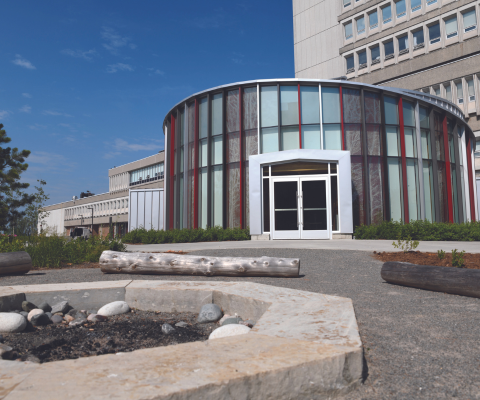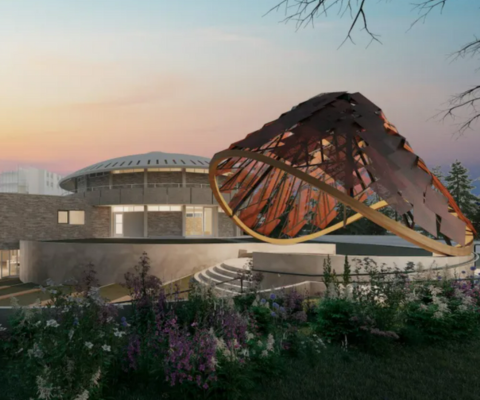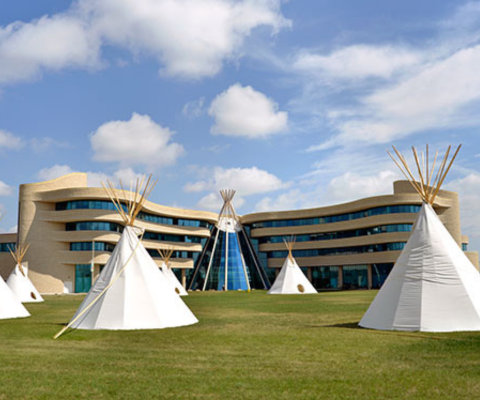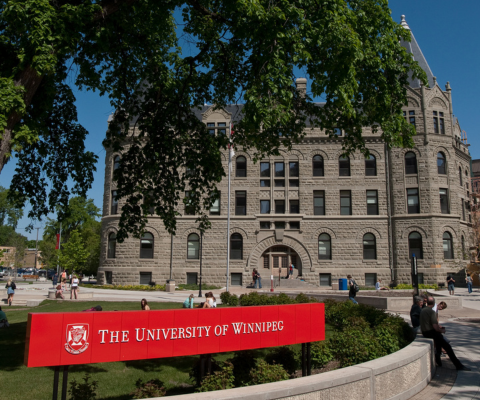We must do more to close Canada’s education gap

This op-ed was published in The Hill Times on January 27, 2014.
By Dr. David T. Barnard, president and vice-chancellor of the University of
Manitoba
As we strive to create opportunities that are in the best interests of all peoples who make up this country, it is important to ask ourselves: Are we the best Canada we can be?
Until we all come together to establish a new relationship with First Nations, Métis and Inuit peoples, one where we are all full partners and participants in the good fortune we enjoy as Canadians, the answer to that question is no.
As the leaders of Canada’s universities and colleges, presidents play an important role in building the bridges and creating the conditions that allow for this new and better relationship. Education has the power to sustain entire communities and cultures as it transforms the lives of individuals.
In Canada, our Indigenous population is young and rapidly growing. Despite significant barriers and challenges put in their way, many Indigenous youth are already succeeding as leaders, entrepreneurs, scientists, professionals and critical thinkers. Our challenge is to ensure that all First Nations, Métis and Inuit students can achieve educational success and realize their goals. The positive impact that these young people can and will have on communities, provinces and our country is enormous.
As we move forward, we must recognize our shared and broken history. We still have not come to full terms with the impact of Indian Residential Schools, a product of our colonial past. The misuse of education as a tool for forced assimilation has, for many Indigenous people, instilled deep mistrust of the current education system. Residential Schools destroyed families, damaged communities and were designed to extinguish Indigenous languages and cultures.
This means building trust in small ways and large so that our universities and colleges are welcoming places and that the time and effort of students and their families translate into successes that create positive change in their lives.
Canadians must make new investments in pre-school and elementary education, especially in First Nations communities where the resources per student are a fraction of what they are anywhere else in the country. By enhancing the quality of education in the early, middle and high school years, university and college preparedness, enrolment rates, and ultimately graduation rates, will be improved.
We also need to build partnerships with Indigenous communities and put greater value on traditional knowledge and teachings. We know that when our scholars reach out to urban Indigenous, First Nations, Métis and Inuit communities, they come away with richer perspectives that enable collaboration and shared learning. Indigenous students bring with them enormous gifts that should be embraced and be reflected in all academic and research programs because they make our universities and colleges better and stronger.
We need to harness our capacity for innovation and create programming that recognizes the challenges some of these students face and help them transcend barriers to success. This includes addressing non-academic challenges, including a shortage of adequate and affordable housing and child care, because they are as critical a component of student success as any other part of the student experience.
Today, universities and colleges across the country are taking steps to provide relevant programming and services to Aboriginal students and are working to incorporate Indigenous ways of knowing and being into institutional structures.
However, our relationships and our records as post-secondary institutions in terms of serving First Nations, Métis and Inuit students are not nearly as strong as they need to be. It is the reason why improving Indigenous education throughout the country needs to be an important strategic goal for all of us.
First Nations, Métis and Inuit students have transformed many places of higher learning and continue to push us to make changes that improve our educational, cultural, social and organizational approaches.
In the 1970s, a small, dedicated group of students including former Assembly of First Nations Chief Ovide Mercredi convinced University of Manitoba administrators and faculty that actions needed to be taken to make them feel welcome on our campus.
These efforts resulted in the creation of the First Aboriginal Students Association in the country and paved the way for the establishment of U of M’s Native Studies program.
Mercredi was recognized for these and many other contributions he has made to this country, by being named the University of Manitoba’s Distinguished Alumni Award recipient for 2013. At the dinner honouring Mercredi, he issued a challenge to all of us – to create a prosperous Indigenous middle class in Canada.
It is a challenge we should all embrace. It is noble, in all of our interests and will ultimately lead to a better, a more just and more prosperous Canada.
David T. Barnard is President and Vice-Chancellor of the University of Manitoba and Chair of the Association of Universities and Colleges of Canada (AUCC).
About Universities Canada
Universities Canada is the voice of Canada’s universities at home and abroad, advancing higher education, research and innovation for the benefit of all Canadians.
Media contact:
Lisa Wallace
Assistant Director, Communications
Universities Canada
[email protected]
Tagged: Indigenous education




